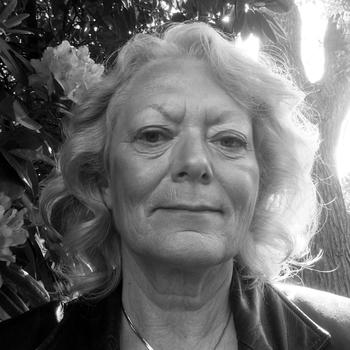Sabine Wilke

Interweaving Performance Cultures
Fellow 2017/18
Sabine Wilke is professor of German at the University of Washington, where she also teaches in the European Studies Program. Her research and teaching interests include modern German literature and culture, intellectual history and theory, and cultural and visual studies. She has written books and articles on body constructions in modern German literature and culture, German unification, the history of German film and theater, contemporary German authors and filmmakers, including Christa Wolf, Heiner Müller, Botho Strauss, Ingeborg Bachmann, Elfriede Jelinek, Monika Treut, and others. Most recently, Wilke was involved in a larger project about German colonialism and postcoloniality, and the question of comparative colonialisms, especially how Germany related differently to Africa and the South Pacific. With assistance from the Alexander von Humboldt Foundation Wilke is directing a transatlantic research network on the environmental humanities and is working on a new project on environmental criticism, in particular the overlapping concerns of postcolonialism and ecocriticism.
Research Project
Anthropocene Performances: Theorizing Interweaving Beyond Postcolonialism
In my proposal I would like to initiate a dialog between performance studies and the newly emerging subfield of the environmental humanities via a project I call Anthropocene Performances. The Anthropocene captures the idea that humanity as a species (i.e. cross-culturally and beyond the fault lines established by postcolonialism) has become a geological force that is changing the atmospheric patterns of our planet’s systems. To go beyond intercultural theater and postcolonialism requires a conceptual framework that is capable of structuring the radical interconnectivity of nature-culture relations in new ways. In literary studies, critics complain about lacking adequate models for describing the new aesthetic strategies explored in literary texts that trope these radical interconnectivities. Scholarship on performance faces a similar dilemma whenever an abundance of new forms of aesthetic practices can be observed, yet a theory that finds a new language to adequately describe these new types of performances has yet to be articulated. While postcolonial conceptual frameworks highlight the continuation of asymmetrical relations of power and dependencies, they do so on the basis of a firm “the West and the rest” paradigm that was useful and necessary in a modern world defined by dualisms. In the Anthropocene, however, processes of interweaving may constitute themselves beyond such dualisms that can no longer be captured in postcolonial critical terms. The radical interconnectivity of nature-culture relations may be the condition of possibility for the perceived growth of new forms of diversity in performance cultures. We also need to rethink the concept of diversity if the postcolonial framework no longer suffices.
Recommended Publications
- Marranca, B., Ecologies of Theater: Essays at the Century Turning, Baltimore and London: The Johns Hopkins University Press, 1996.
- Demos, T. J., Decolonizing Nature: Contemporary Art and the Politics of Ecology, Berlin: Sternberg, 2016.
- Wilke, S., “Performances in the Anthropocene: Embodiment and Environment(s) in Ilija Trojanow’s Climate Change Novel,” in Hoffmann G. and Zoric, S. (eds), Presence of the Body: Awareness in and beyond Experience, Leiden: Brill, 2016, pp. 183-84.
